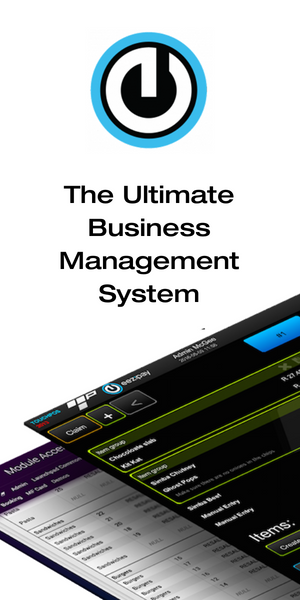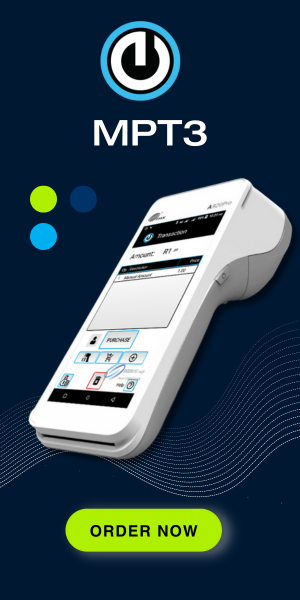The advent of smart mobile Point of Sale (POS) systems has marked a significant turning point in the realm of business operations. This article will delve into how smart mobile POS devices are not just modernizing but revolutionizing various aspects of business management—from streamlining operations and enhancing customer experiences to improving sales management.
The Evolution of POS: From Traditional to Mobile
Gone are the days when cash registers and clunky POS systems defined the checkout points at businesses. The evolution of POS technology has brought forth the era of smart mobile POS devices—compact, versatile, and powerful tools that offer more than just transaction processing. These devices embody the technological advancements that cater to the dynamic needs of modern businesses.
Streamlining Operations with Smart Mobile POS
One of the most significant advantages of using smart mobile POS devices is the unparalleled efficiency in business operations. These systems simplify numerous tasks:
1. Inventory Management
Smart mobile POS systems often come with integrated inventory management tools. They can track product movement, manage stock levels, and even automate ordering processes, ensuring that businesses always have the right amount of inventory without the guesswork.
2. Payment Flexibility
With the capability to accept various forms of payments – from cash to credit cards, NFC payments, and even digital wallets – mobile POS systems make transactions smoother and faster. This flexibility is crucial in a world where consumers increasingly prefer contactless and mobile payment options.
3. Enhanced Mobility
The mobile nature of these POS systems means that they can be used anywhere within the business premises. This mobility is particularly beneficial for restaurants and retail stores, where employees can complete transactions right at the customer’s location, reducing queue times and improving service efficiency.
4. Enhancing Customer Experience
The modern consumer seeks convenience, speed, and personalization in their shopping experience. Smart mobile POS devices play a pivotal role in meeting these expectations:
5. Speedy Checkouts
Long waiting times are a significant deterrent for customers. Mobile POS systems expedite the checkout process, thereby enhancing customer satisfaction and encouraging repeat business.
6. Personalized Interactions
These systems can store customer data, which can be used to personalize interactions. By understanding purchasing behaviors, businesses can tailor their services and recommendations, thereby fostering a deeper connection with their customers.
7. On-the-Spot Service
In sectors like hospitality, mobile POS devices enable on-the-spot ordering and billing, significantly enhancing the customer experience. In retail, associates equipped with mobile POS can provide immediate assistance, check inventory, and close sales without ever leaving the customer’s side.
Improving Sales Management
Another area where smart mobile POS systems shine is in sales management:
Real-Time Data and Reporting: These systems offer real-time insights into sales trends, popular products, and customer preferences, allowing businesses to make data-driven decisions. Such analytics are invaluable for crafting effective marketing strategies and improving product offerings.
Effective Loyalty Programs: Integrating loyalty programs with mobile POS systems helps businesses track and manage customer rewards more efficiently. This integration encourages repeat visits and increases customer loyalty.
Overcoming Challenges with Smart Mobile POS
1. Reducing Errors and Fraud
The automation of transactions and record-keeping reduces the chances of human error and fraud. Detailed digital receipts and secure transaction processes also add layers of security, both for the business and the customer.
While the benefits are plentiful, businesses may face challenges in implementing mobile POS systems:
2. Initial Setup and Training
The transition to a mobile POS system requires an initial setup and training period. Employees need to be trained to handle the new system effectively, which can initially require time and resources.
3. Technology Integration
Integrating mobile POS systems with existing business systems and workflows can be a challenge. Businesses need to ensure compatibility and seamless data synchronization between systems.
4. Security Concerns
With the increasing amount of data being processed, security becomes a paramount concern. Businesses must ensure that their mobile POS systems comply with industry standards and data protection regulations.
The Future of Mobile POS
The future of mobile POS systems is bright and evolving. As technology continues to advance, we can expect these systems to become more integrated, offering even more features and capabilities. The incorporation of AI and machine learning could further personalize customer experiences, while advancements in payment technologies might introduce even more payment options.
Conclusion
Smart mobile POS systems represent a significant leap in the way businesses operate and interact with their customers. By streamlining operations, enhancing customer experiences, and improving sales management, these systems offer a comprehensive solution to modern business challenges. As technology continues to evolve, the capabilities of mobile POS systems will only expand, further revolutionizing the business landscape.
As we embrace the future of mobile POS technology, the MPT3 stands out as a prime example of innovation and efficiency. Merging advanced processing capabilities with user-friendly design, the MPT3 revolutionizes how businesses handle transactions. It’s not just a payment processing tool; it’s a comprehensive solution that enhances customer engagement, streamlines sales management, and offers unparalleled versatility for various business environments. With its robust features and intuitive interface, the MPT3 is more than just a mobile POS device; it’s a catalyst for business transformation, setting a new standard in the industry.






